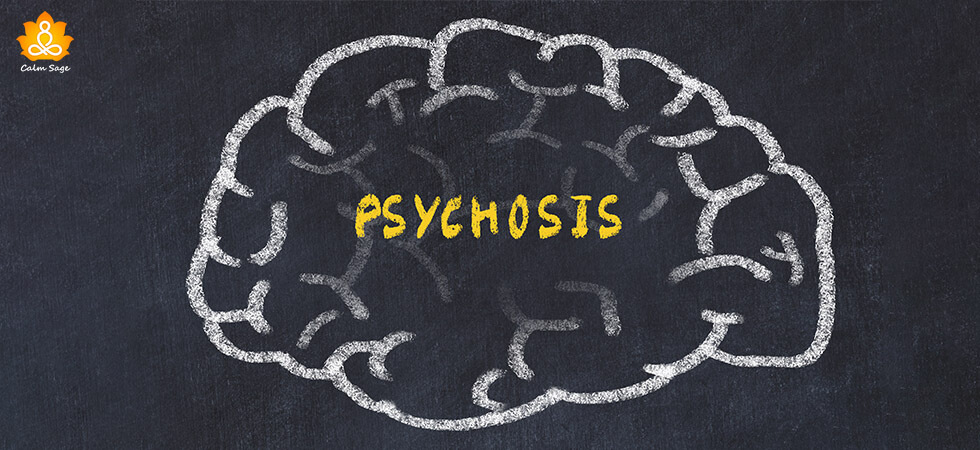An Overview Of Psychosis

List of Contents
Introduction to Psychosis
Psychosis is defined as a loss of contact with reality that includes delusions and hallucinations. Delusions include having false ideas about who you are or what is taking place near you. Hallucinations include hearing or seeing things that are not real. Delusions and hallucinations impact the road that passes information to the brain. Having psychosis means hearing, seeing, or feeling things that are not real.
A person experiencing psychosis shows symptoms related to a number of mental health issues like bipolar disorder, post-traumatic stress disorder (PTSD), schizophrenia, and schizoaffective disorders. Other conditions are depressive episodes and postpartum psychosis. This blog covers an overview of psychosis disorder.
Types of Psychosis Disorder:
Below are some forms of psychosis:
1. Bipolar disorder: This includes manic episodes that result in psychosis.
2. Brief psychotic disorder: Brief psychotic disorder is about the sudden and short onset of psychosis that results in stressful situations.
3. Delusional disorder: Delusional disorder is defined as the incapability of distinguishing between what is imagined and real.
4. Drug-induced psychosis: It takes place when someone begins to withdraw from drugs like methamphetamine or alcohol.
5. Postpartum psychosis: It is a severe type of postpartum depression that requires emergency medical attention.
6. Schizoaffective disorder: This involves symptoms of schizophrenia and mood disorders.
7. Schizophrenia: It is a range of psychotic signs and symptoms.
8. Severe depression: It includes symptoms of psychosis and depression.
9. Schizophreniform disorder: It is a short-term form of schizophrenia.
Symptoms of Psychosis Disorder
Remember, psychosis is a symptom of another mental health problem, it’s not an illness. Some common symptoms of psychosis are:
- Delusions
- Scattered speech and thinking, disorganized behavior
- Hallucinations
- Jumbled thoughts and actions
If you think you or someone close to you is experiencing the symptoms of psychosis, do not look for personal advice and contact a certified mental health provider ASAP.
Causes of Psychosis Disorder
Psychical causes that can lead to psychosis disorder are:
- Certain drugs or alcohol
- Tumors or brain cysts
- Certain drugs that include stimulants or steroids
- Types of epilepsy
- HIV
- Dementia
- Stroke
- Parkinson’s disease
Moreover, psychosis can also be caused by mental health issues like schizophrenia, bipolar disorder, depression, or schizoaffective disorder. People are keener to have psychosis when they have a close family member with a psychotic disorder.
Psychotherapy for Psychosis Disorder
Apart from medications, psychotherapy is also known as an effective method of treating psychosis. It helps to fight the cognitive symptoms of conditions like schizophrenia and depression. Psychotherapy is more successful when people are diagnosed with comorbid conditions like mood disorder or anxiety.
If you know someone experiencing psychosis, we strongly recommend proper diagnosis and treatment. If left untreated or unseen, it can convert into the worst phase.
Coping Strategies for Psychosis Disorder
After seeking professional advice and a proper treatment plan, you can start up with these coping strategies for an effective and speedy recovery.
1. Finding a social system
First of all, you can join any support group or support system that deals with mental health disorders. You can also surround yourself with people who support you and encourage you to do better. You can also look for online support groups, it helps in the speedy and effective recovery.
2. Understanding the pattern
The more you will read about psychosis, the more you will understand your psychosis. Therefore, along with the research, try to understand your triggers and try to manage them accordingly. You can look for specific triggers like stress, improper sleep, mood swings, and more.
3. Making a plan
Once you understand the triggers and patterns, try to make a plan that communicates your needs. Try to make a plan with things you love to do and avoid things that cause stress in your life.
Please Note: We have provided this material as information. It is not intended as a substitute for medical expertise or advice. We strongly encourage you to discuss any decisions about treatment with a certified mental health provider.
I hope this blog helps you to understand an overview of psychosis. Comment down your queries related to psychotic disorder. For more such content, follow Calm Sage on all social media platforms.




















